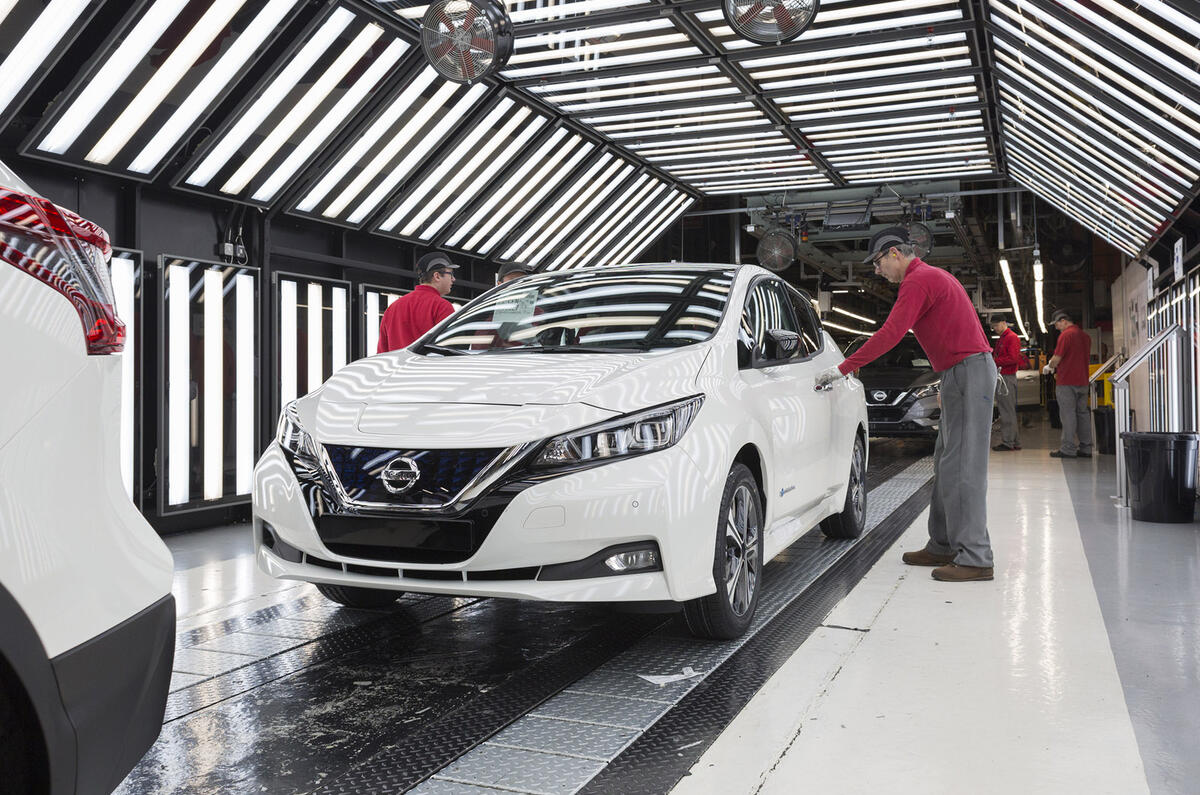Feet up, mug of tea in hand and… breathe. Time to tick Brexit off your worries list? Don’t you believe it, because among the devilish details (most of which present more difficulties than impossibilities, thereby still eating time and expense) lurks a ticking time bomb that threatens to destabilise the UK car industry unless urgent action is taken.
It relates to a requirement for the UK or EU content of cars to ramp up between now and 2027, with a particular emphasis on the entire battery in any EV being sourced from either of the regions by that date. Failure to meet these ‘rules of origin’ will result in 10% tariffs being added that would threaten the value of assembling cars in the UK.
If you judge on EVs’ UK market share of 6.6% last year, you might well see it as an issue gladly kicked down the road, but the trajectory of uptake is heading only one way to 2030 and beyond.
Some 200,000 today work in vehicle manufacturing and its supply chain, many in jobs, most notably engine-related, that are on a path to no longer existing.
The choice is between encouraging battery makers to invest here (gigafactories cost billions, take around two years to build and need very complex supply chains) or giving away the skills and employment opportunities and importing from the EU, as Mini does on a relatively small scale for the Mini Electric (proving that the objections over complexity and cost are surmountable, at least).
At present, the latter looks more likely than the former. Today we have one battery facility – in Sunderland, built by Nissan to support Leaf EV production, now sold but still supplying the factory – and a second at the late planning stage, being set up by Britishvolt, a start-up that’s set to launch in 2024 to supply a currently unknown customer base.
Sunderland makes about 2GW of batteries per year, and Britishvolt will take that figure to 15GW, or enough to make around 250,000 EVs. In normal times, the UK makes around 1.3 million cars annually, so the need to scale up again if we want homegrown production beyond 2030 is clear.
Yet for now, there’s no visible queue of willing investors or government encouragement to make the UK look more enticing to investors. Meanwhile, EU nations are fast-tracking their plans and getting a headstart on developing the infrastructure that will be at the heart of the industry in the future.
Our place in the car-making hierarchy right now drives huge amounts of employment, revenue and investment. But without long-term planning, a large slice of its competitiveness is going to come back into the spotlight in just a few years.
READ MORE
Nissan “satisfied” with Brexit deal outcome, says UK boss
Inside the industry: How long will Brexit blight the car world?
Analysis: 'British' cars matter more than ever for the UK post-Brexit




Join the debate
Add your comment
As noted by others, it's not just batteries that are a future issue. Current local content of whole vehicle is only around 40-45%, needs to rise to 60% in an infeasibly short time frame. The industry is just going to have to somehow ensure tariffs for the medium term at least.
A sorry outlook it seems. Shame on David Cameron and all that followed.
The British vehicle manufacturing plants drifted into mass de-sourcing of UK suppliers in favour of buying from overseas, supported by cheap(er) transport, occassional (when xchage rates allowed) lower prices, the provision of design capabilities and an elemnt of "go with the flow" laziness. Having done that the best thing UK customers can do now is to buy vehicles built in the UK - Vauxhall (including Luton built vans), JLR, Nissan, Toyota, BMW Mini and, for the time being, Honda. This encourages those OEMs who want the UK,s (massive) sales to set up shop in the UK - and pay, via employment, into the UKs tax and National Insuarnce coffers.
I'm not sure why anyone would invest in a UK factory post Brexit, unless it was purely to supply the UK domestic market. Opening factories in Europe gives you single market access to a much bigger market. So in all likelyhood today's ICE jobs will go to the EU.
The only way I see Brexit working is by slashing the size of the state so that taxes can be lowered, making the UK a cheaper place to invest in. Lowering workers rights, allowing the pound to drop further would all help Brexit Britain. If you think this is the way forward then maybe Brexit will work. But if you don't want a more unequal society then Brexit will never deliver.